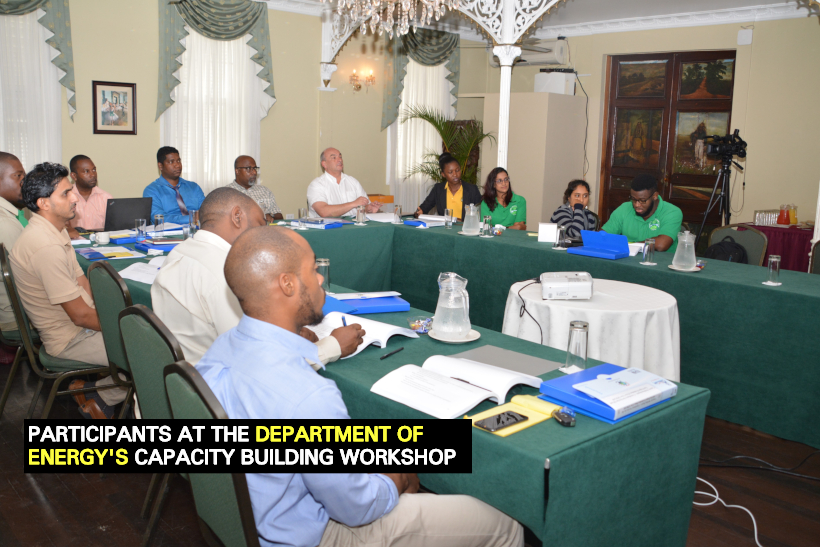The Ministry of the Presidency’s Department of Energy yesterday concluded a two-day capacity building workshop which focused on Field Development Planning for the oil and gas sector.
The training, hosted at the Cara Lodge, was conducted by the Bayphase consultancy company and designed for employees of the Guyana Geology and Mines Commission (GGMC) – Petroleum Department; the Environmental Protection Agency (EPA); and the Department of Energy (DoE).
The workshop covered topics including Resource Assessment and Reporting Standards; Key Elements of Field Development Planning; Cost Estimating and Validation for Oil and Gas Projects; and the Life Cycle of the Oil and Gas Industry.
Department of Energy, Oil and Gas Advisor, Mr. Matthew Wilks, said that Bayphase assisted in the Field development review of the Liza Phase 2 well and, as a result, has been passing its expertise on to local staff.
“Part of the undertaking was also to pass on the knowledge to our Guyanese team…The workshop looks at how oil companies plan developments; the information that they need to acquire to be able to plan them successfully; and also the points at which a government body should be involved in that planning, in terms of how early on should they engage with us and how they should take us through the journey. It looks at the contents of what a Field Development plan should include…and it aims to provide guidance to the key government agencies as to what are the key areas to look for when you are reviewing this,” Mr. Wilks said.
The Oil and Gas Advisor added that the aim is to increase the capacity of local staff so that, over time, the use of external consultants will be reduced and eliminated.
Meanwhile, GGMC Petroleum Engineer, Mr. Paul Williams said the workshop gave him a more detailed understanding of phase development planning. “We got a better understanding of some of the reservoir characteristics in terms of understanding the type and the amount of oil that was found, and the mechanisms that will have to be put in place properly and efficiently to extract the petroleum resource…You realise that you’re looking at a lot of phased planning in the sense that you’re not just looking at what happens above the surface, but basically trying to optimise what is going on underneath,” he said.













